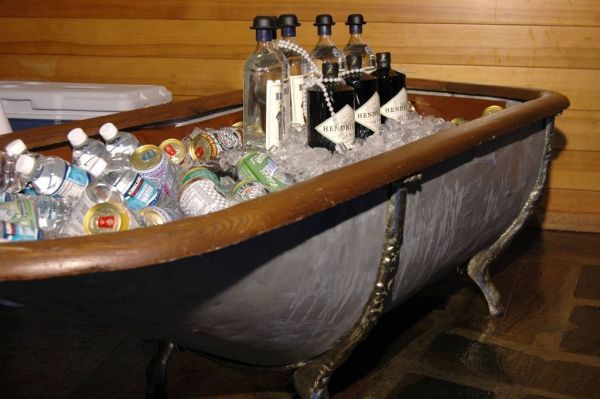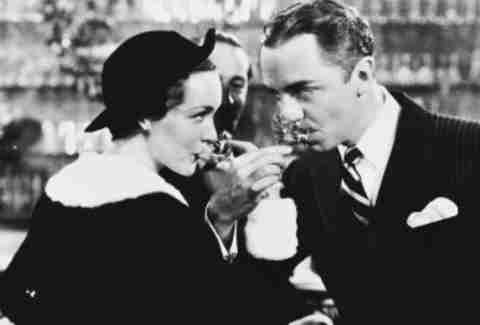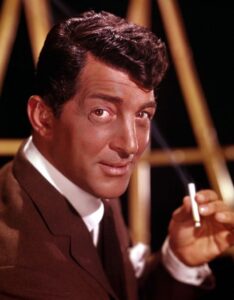Question: Is America turning into the biggest collection of busybodies in the world?
Answer: No – we’ve been there for a long time.
Our busybody pedigree traces far back to the settling of the Americas. Spaniards converted the Indians wherever they went – usually at the point of the sword. (Early missionary work was somewhat different from today’s style.)
New England settlers made much of coming here for “religious freedom.” But they meant their religious freedom, not necessarily yours – particularly if your revelation differed from theirs. Both Connecticut and Rhode Island were established in reaction to some of the Massachusetts colony’s uglier religious practices. The state that now thinks gay marriage is a swell idea was pretty tough on “heretics” back in the day. (cf. the “Salem Witch Trials.”)
In the 1860s we fought a huge civil war, nearly destroying the country. Each of two groups of states wanted its own way. Actually, one group wanted to go its own way to practice its “peculiar” institution (i.e., slavery). The other group said, “nothing doing.” Being bigger and stronger, it won the argument and abolished the peculiar institution. It was a bloody mess.
Late in the 19th century reformers got cranked up about the damage caused by alcohol-abuse. Even children were drinking in some locales – especially where they had to work in factories. Legitimate concerns about alcohol-abuse gradually grew into a national political movement. By the second decade of the 20th century it was strong enough to pass a Constitutional Amendment (the 18th – i.e., the Volstead Act) which prohibited all commerce in alcoholic beverages. You could still make your own bathtub-gin and drink yourself silly, but you couldn’t legally buy a drink, or sell one. This created a significant commercial vacuum.
Huge criminal enterprises soon sprang up to manufacture, buy and sell alcohol. Fortunes were made from a vast underground commerce formed to slake Americans’ thirst. Even people who cared little about booze became drinkers (and lawbreakers) because it looked like the “in” thing. Speakeasy dates, raccoon coats and Stutz Bearcat roadsters were favored by the hip young.
Organized crime was bankrolled and established with the gigantic profits, and every layer of government and law enforcement was corrupted. Ultimately, even the reformers rejected the Volstead Act and asked for repeal. When FDR was elected, undoing Prohibition was his first task.

Part of the American character is a tendency to believe that anything we consider “bad” must be outlawed. If enough like-minded people join forces, a new law against something is bound to result. A century ago, most drugs were legal and available. Heroin and morphine were touted as treatments for alcoholism, before their addictive properties were realized. Even Coca Cola had that “pinch” of cocaine to “pick you up.” Its name still evokes that scandalous past. But as the “social reform” bandwagon got rolling, new laws made many drugs illegal (except by a doctor’s prescription). Americans had decided drugs were “bad.” They had to be outlawed.
Conversely, we had to agree that alcohol was now “good,” to make its re-legalization ethically acceptable. Films of the 1930s and ‘40s shamelessly pushed drinking – shockingly so, by today’s standards. People drank when they came home; they drank when discussing some difficult issue; they drank before going out; they drank morning, noon and night. (You get the picture.)
Today, we have 20 million-plus alcoholics who cost us billions in damage and thousands of deaths every year from alcohol-related auto accidents. Kids show up drunk at school – sometimes even in the elementary grades. We call it an “illness” and turn a blind eye because we know we can’t outlaw booze again. We tried that earlier, and it didn’t work.

Is outlawing drugs working any better than alcohol-prohibition did? You tell me. Certainly these dangerous, often lethal substances need to be controlled to prevent the harm they can do. Yet despite federal and state laws that make the drugs illegal, a huge criminal network – so powerful that it actually interferes with control of our borders – runs world-wide illegal drug commerce. Its profits total more than $500 billion a year (exceeding the GDP of all but a handful of countries in the world).
Short of engaging in war with countries producing the stuff, any way to stop this destructive commerce is not apparent. And compounding the problem, a vast enforcement infrastructure – demanding more and more billions in funding – has now grown up around the illegal industry. How would the rice bowls of all those cops, lawyers, judges, bailiffs, doctors, etc., be filled, should the drug problem suddenly go away? We’re stuck in a war we can’t win, but can’t possibly quit. We can all agree that drugs are bad. But is just passing more laws that make them illegal really the best solution, without proper control of our borders?
George Santayana said, “Those who cannot learn from history are doomed to repeat it.” This includes people of the USA, as we’ve evidently learned nothing from our experience with Prohibition. Our attitude toward tobacco is another example. In the 1960s, the country was shocked – shocked! – to learn that cigarette-smoking is bad for your health (duh!). Accordingly, we’ve moved inexorably toward outlawing tobacco. We’re almost there now, with whole towns declaring that they are “smoke-free zones.” Cigarette taxes are so high in some locales that smugglers bring in truckloads of smokes from low-tax southern states to sell on the black market.
The anti-tobacco campaign means that we’re chasing tobacco-smugglers around, while real bad guys are streaming across the Mexican border with serious crime, drugs and terrorism on their minds. Smoke-free might be a worthy goal, but could we be bomb-free first? And now towns and states that frown on tobacco are legalizing marijuana. (Hello! Is anyone in there?)
But the Busybody Nation’s zenith is still ahead of us. Now we’re hearing talk about punitive taxes on high-fat and high-sugar foods to save us from obesity. Lawyers are planning class-action lawsuits against ice cream, fast-food restaurant chains, and soda-pop makers. Charts of ideal weight vs. height for American men and women now resemble standards from Dachau, ca. 1943. And skinny people all over the country are writing books and lecturing us on how to get thin.
Could we pleeeeze have a moratorium on people of stick-figure ancestry advising plump middle-agers like myself (one of my grandmothers weighed 480 pounds!) on how to reach that ideal concentration-camp physique? Enough, already, with the books telling how you lost five pounds!
Suppose pro basketball players started advising us on how to grow tall? – what to eat and how to exercise. We’d laugh, because we know height is genetically determined. But is it? A friend said she was two inches taller than her identical twin sister – probably because of exercise. Tall people could become a real pain, and end up persecuting short people, if they somehow gained enough political clout to enact “anti-shortness” laws. I don’t think they will, but the persecution of chubby people is already well under way. We need to cut it out.
When I was a kid, we rebuked highhanded busybody-ness by saying, “Hey! It’s a free country.” Try to remember when you last heard anyone say that. And give some serious thought to what kind of society we are becoming. People should be able to smoke, drink, and eat a hot dog or a candy bar – all in reasonable “moderation” of course – without being ostracized. Taxes on simple pleasures shouldn’t be so onerous that they create black markets. And people of plump physique – once a mark of prosperity, before Hollywood decided that thin is beautiful – deserve to live free of harassment.
“I’ll drink to that!” (Dean Martin)



2 comments
Booooo, nobody cares about incoherent ramblings. We want Sunday memes!!
“Short of engaging in war with countries producing the stuff, any way to stop this destructive commerce is not apparent.” But it is all Biden’s fault, right?